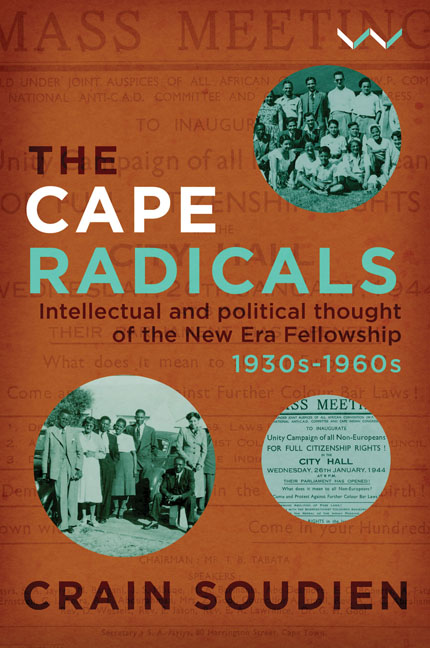Book contents
- Frontmatter
- Contents
- Acknowledgements
- Acronyms and Abbreviations
- Timeline
- Introduction
- 1 A Battle of Ideas
- 2 Planters of the Seed
- 3 ‘Anything under the Sun’: The Formation of the New Era Fellowship
- 4 ‘Honest, Sincere and Fearless’, 1937–1940
- 5 The Road to Emancipation, 1940–1953
- 6 A Cauldron of Conflict
- 7 Legacy
- Notes
- List of Illustrations
- Bibliography
- Index
4 - ‘Honest, Sincere and Fearless’, 1937–1940
Published online by Cambridge University Press: 29 October 2019
- Frontmatter
- Contents
- Acknowledgements
- Acronyms and Abbreviations
- Timeline
- Introduction
- 1 A Battle of Ideas
- 2 Planters of the Seed
- 3 ‘Anything under the Sun’: The Formation of the New Era Fellowship
- 4 ‘Honest, Sincere and Fearless’, 1937–1940
- 5 The Road to Emancipation, 1940–1953
- 6 A Cauldron of Conflict
- 7 Legacy
- Notes
- List of Illustrations
- Bibliography
- Index
Summary
The first few years of the New Era Fellowship (NEF) were selfconsciously experimental in their form and substance. Phumi Giyose, a New Unity Movement (NUM) theoretician, describes it, in relation to the role of Ben Kies, as ‘an experimental period from 1935 onwards when the upcoming leadership of the Non-European Unity Movement [NEUM] was looking in a rich mine field of political experiences for a theory and organisation praxis’. M M Herries has described it as a ‘sorting-house’. This experimentation and ‘sorting out’ took all of its stimulus from the particular character of the conjuncture – the onset of the Second World War, and the intentions of the South African government to take the franchise away from people classified as ‘coloured’. The conjuncture precipitated an intense crisis of social analysis – how to hold together what was going on internationally with what was happening in South Africa. The thesis of the ‘Black Republic’ was, by itself, inadequate, but it was not immediately apparent what to put in its place. The ground first needed to be cleared. Giyose says that ‘maximum programmes from Europe were tried out and got rejected in favour of a minimum programme of democratic demands. Vanguard party formations offered their candidature. These were put aside in favour of a broad national front. Liberalism, Gandhism, nationalism – all these put themselves on offer. They were pushed aside.’
One sees in this experimentation the NEF giving its attention to a wide range of issues in the beginning. The organisation arose in response to the need for clearing the ground with respect to the immediate issues of the socialist struggle and the tactics and strategies of the South African revolution. At that time, as Sarah Mokone explains:
… very many political currents flowed through [the NEF], contributing a wide diversity of political outlooks, attitudes and approaches … There was the initial nucleus – the group of UCT [University of Cape Town] students – and then there were people from every political grouping: These included young members of the TLSA [Teachers’ League of South Africa] dissatisfied with the Van der Ross-F. Hendricks bureaucracy. There were also elements from around the APO [African People's Organisation] increasingly sceptical of Abdurahmanism. And even Abdurahman himself on occasion went to the NEF to teach youngsters their place.
- Type
- Chapter
- Information
- Cape RadicalsIntellectual and Political Thought of the New Era Fellowship, 1930s to 1960s, pp. 93 - 112Publisher: Wits University PressPrint publication year: 2019



